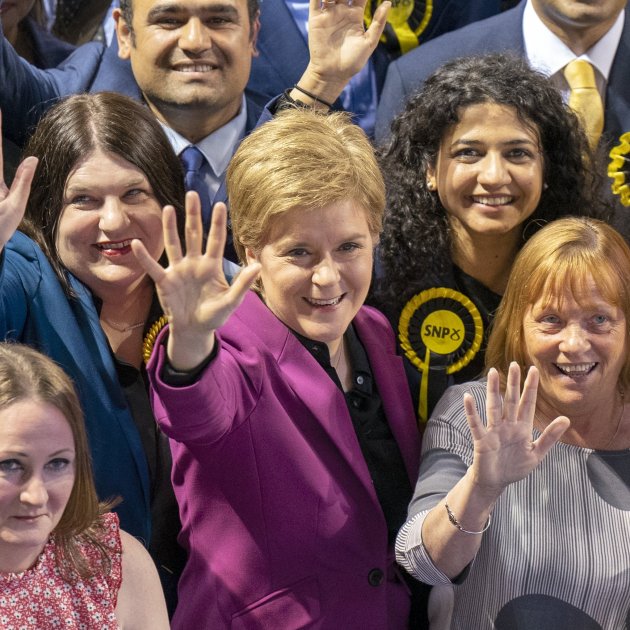Germany is not about to lose its cool over the decision by Scottish first minister Nicola Sturgeon to go ahead on its own with its second independence referendum, even if the authorities in Westminster do not grant permission. The Frankfurter Allgemeine Zeitung, considered Germany's most influential newspaper, described the planned consultation as "against the law" but also recalled that prime minister Boris Johnson has been casual about compliance with the law at times, as was the case with the EU protocol on Northern Ireland. "It would not be legal for the Scottish government to hold another independence referendum without London's consent. But Boris Johnson doesn't take law and order very seriously either," the newspaper said. Is the Scottish referendum becoming a lever for EU pressure on the government of the UK? The signs are there.
According to the Frankfurter Allgemeine, the Scottish government is now "flirting with the idea of letting its people vote, without prior agreement with London. That would be leaving the terrain of law and order." "But Boris Johnson and his government shouldn't complain too much. In his personal interpretation of what is covered in the Brexit deal with the EU, [Boris] doesn't take the law on Northern Ireland either [too seriously]," it added. It also recalled last night's intervention in the planned deportation by the UK of asylum seekers to Rwanda, which was stopped at the last minute by the European Court of Human Rights (ECHR).
The pound falls
In fact, the serious nature of Sturgeon's announcement yesterday caused the fall of the pound sterling, as Swiss radio SRF noted. Sturgeon has vowed to hold another independence referendum in Scotland without going through Whitehall if necessary. "If we are to uphold democracy in Scotland, we must forge a way forward. If necessary, without a Section 30 order", she sustained, referring to the special powers that were temporarily granted to Scotland for the 2014 indyref. "But we need to do it in a way that is legal," she said in an interview with the BBC. Thus, a new campaign to hold a referendum in Scotland has been set in motion. This Tuesday, the Scottish leader announced the start of a campaign to call a second referendum on the country's independence, which she hopes to make tangible by the end of 2023. In response to this, the BBC asked her if her words were intended to formally launch the campaign for the second IndyRef and Sturgeon responded with a resounding "yes". For the Scottish leader there is an "indisputable democratic mandate" to call a second ballot.
The campaign announced by Sturgeon to the BBC and explained more extensively later the same morning at a press conference in Edinburgh, begins with the publication of a series of papers justifying the holding of a new referendum. The first paper, published on Tuesday, compares the situation in Scotland with other European states - in particular, the countries of north-western Europe - and outlines the benefits that the Scottish people would have if they became a new state. The paper is entitled: Wealthier, happier, fairer: why not Scotland?
